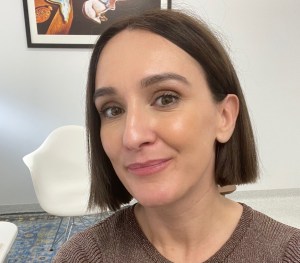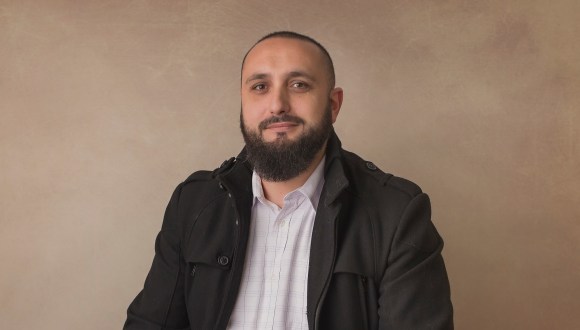Welcome to our new series where we will showcase THIS WAY UP Digital Champions.
We recently invited health professionals who have been committed to integrating our online Mental Health and Wellbeing programs into their practice to share their experience with us. We hoped to hear first-hand from these Digital Champions how THIS WAY UP enhances their clinical practice and supports their clients. We asked these 5 questions to better understand their experience.
Thank you to all the clinicians using THIS WAY UP for your ongoing support!

Rosie Ross is a General Practitioner with a special interest in midlife women’s health, and a proponent of Lifestyle Medicine based in Coffs Harbour, NSW.
How did you first come to try digital mental health in your practice?
My journey into integrating digital mental health into my practice began somewhat pragmatically. To maintain my Level 2 Focused Psychological Strategies status, I completed an online eMental Health course. This course wasn’t just a box-ticking exercise; my decision to use digital mental health was driven by a commitment to holistic patient care and my realisation that these digital tools could significantly augment the support I provide.
As I navigated through the course, I was introduced to various digital mental health platforms. Among these, the THIS WAY UP website stood out for its user-friendly interface and wide range of online programs addressing common issues my patients experience.
I appreciated the ability to waive the usual $59 fee, which made these tools readily accessible to my patients by removing any financial barriers to their accessing additional mental health care resources. Consequently, I started prescribing specific programs from THIS WAY UP as part of my treatment plans. For instance, a patient struggling with chronic pain could now complement our sessions with a targeted online program. Similarly, those grappling with anxiety or depression found these digital resources to be a valuable adjunct to our in-person therapy sessions.
What were your biggest concerns about digital mental health and how did you overcome them?
A significant part of my patients’ therapeutic success lies in the rapport and trust I establish with them. I was initially apprehensive that digital tools might depersonalise the therapeutic experience. To counter this, I use a hybrid approach, using THIS WAY UP’s digital mental health programs as a complement to, rather than a replacement for, our regular sessions.
What are the benefits of using THIS WAY UP?
Over the last couple of years, referral numbers and wait times to access psychologists have increased in my area. I started prescribing THIS WAY UP mental health programs as part of the mental health treatment plan to provide immediate access to therapeutic resources, encourage and enable patients to take an active role in their self-care and bridge the gap while waiting for their first psychologist appointment. The feedback I’ve had from patients is that when they eventually see a psychologist, the groundwork laid by their online mental health tools has contributed to enhancing the effectiveness of their face-to-face therapy.
Do you have a digital mental health success story you can share?
Sarah (not her real name), a 48-year-old professional, was adept at balancing a demanding career and family life, but she found herself increasingly struggling with health anxiety. This anxiety began to encroach upon her daily responsibilities, prompting me to prescribe THIS WAY UP’s Health Anxiety program. This program was particularly suitable for her hectic lifestyle due to its flexibility and ease of access between our scheduled appointments.
Three weeks into the program, I received an automated email indicating a significant increase in Sarah’s distress score. This feature of the digital platform proved invaluable, allowing me to monitor her well-being remotely. I immediately arranged a follow-up appointment with her the next day.
During our session, it became evident that recent escalations in work and family pressures were exacerbating her anxiety. We delved into the triggers and closely examined the coping strategies she had been learning through the program. Sarah found the program’s exercises, especially those focusing on becoming aware of her anxious thinking patterns, particularly beneficial. We fine-tuned these strategies for her current situation. We also practised mindfulness and stress reduction techniques during our one-on-one consultation.
Sarah’s progress over the past six months has been extraordinary. Her active engagement with the digital program has equipped her with essential skills and a sense of empowerment in managing her mental health. The overwhelming health anxiety that once dominated her life has now significantly declined. For instance, she has a 62% reduction in her anxiety levels, as measured by the program’s assessment tools.
As her doctor, witnessing Sarah’s transformation and her regained sense of control over her mental health has been profoundly rewarding.
“Her significant improvement is a clear testament to the effectiveness of blending digital mental health resources with traditional care.”
What’s your favourite THIS WAY UP program, resource or feature and why?
That’s a tough one! I like using the website’s integrative ‘Programs’ home page to introduce my patients to the THIS WAY UP platform. My computer is attached to two monitors; on one, I can turn the screen toward my patient and display this page. The question: ‘Why do an online program to support your mental health?’ tends to answer any initial patient concerns. We then scroll down to the section titled ‘Programs for Specific Mental Health Difficulties & Conditions.’ This section offers a concise overview, and the cartoon characters look friendly. It is very helpful to land on a topic that flips and, with one click, provides a summary under ‘What You Will Learn’ detailing the program’s insights and knowledge.

Dr Lori Shore is a Clinical, Counselling and Organisational Psychologist based in Newport, Victoria.
How did you first come to try digital mental health in your practice?
For a long time now I have worked with clients in regional and rural areas where access to specific psychology treatment such as that I provide is limited. Telehealth and Digital Mental Health services such as THIS WAY UP provides access for these clients, they wouldn’t otherwise get.
What were your biggest concerns about digital mental health and how did you overcome them?
Client access to appropriate equipment and connectivity can be challenging, as well as getting resources to clients to work on in between sessions. I have been flexible in the use of phone and internet delivery as well as emailing my clients resources regularly.
What are the benefits of using THIS WAY UP?
I have used THIS WAY UP as an adjunct to one-on-one therapy.
“It provides accessible, evidence-based resources between treatment sessions and therefore accelerates treatment.”
It is accessible and user-friendly for most people and is not too onerous.
Do you have a digital mental health success story you can share?
This summary feedback was provided by one of my clients with anxiety who I only needed to see for three sessions as she gained so much from THIS WAY UP programs:
“THIS WAY UP offered me the opportunity to access programs in my own time and to replay content as needed. What I enjoyed the most was that you were not just reading text; the content was presented with questionnaires, case scenarios, images and stories that I could easily relate to and work on. Understanding and becoming familiar with how Cognitive Behaviour Therapy (CBT) works, helped me become aware of negative thought patterns and gave me the tools to understand how to change myself for the better – I never thought this was possible! I completed two programs in THIS WAY UP and have found it so helpful that I enrolled into a third program. All I can say is THANK YOU for making this content so helpful and easy to learn and follow.”
What’s your favourite THIS WAY UP program, resource or feature and why?
I have regularly “prescribed” the Mindfulness for Depression and Anxiety program (The Mindfulness-Enhanced CBT Program) as it fits with my therapeutic approach and training. I have, though, had good reports back from clients for the PTS, Chronic Pain and Health Anxiety programs.

Dr Paul Cadzow is a Consultant Psychiatrist at Clear Sky Specialist Clinic at Buderim in Queensland’s Sunshine Coast.
How did you first come to try digital mental health in your practice?
I work primarily in a consulting psychiatric private practice but refer patients to an excellent group program run by one of our local hospitals. I was aware of THIS WAY UP because I work one day a week at a Persistent Pain Management Service at our local hospital which was involved in a project (and continues to use) Reboot [the THIS WAY UP Chronic Pain Program].
When the pandemic happened last year, the group programs were disrupted and both my private and public work moved online. When the group programs became available again, some patients were very wary of attending hospitals or groups because of the pandemic. I began to more frequently prescribe the d-CBT programs available through THIS WAY UP during that time, with some great successes for patients.
What were your biggest concerns about digital mental health and how did you overcome them?
The biggest challenge is patients either not following through on the recommendation to use the digital mental health programs, or beginning but not completing the programs. Because I am still seeing the patients (and because I can check their enrolment and their progress through the Clinician Dashboard), I use the lack of progress or engagement as a prompt to discuss the reasons with them, why I think the program might be helpful, and why I think it will be a helpful part of their recovery.
If a patient scores highly on the screening tests, the prescribing clinician receives a notification. Initially, particularly if the score was higher than I expected, or if there had been some time since I had last seen the patient, this would be concerning. It is, however, actually reassuring because I can easily see what is happening to people’s symptom scores.
“Sometimes I have the great pleasure of being able to tell them how much their scores have improved with the progress they are making.”
What are the benefits of using THIS WAY UP?
The benefit of using THIS WAY UP is that patients effectively and comfortably get a good grounding in the Cognitive Behavioural Therapy (CBT) approach to their conditions and effective strategies for addressing their challenges. This reinforces the way I work but means that some of the psycho-education and coaching in particular CBT techniques is established in between sessions.
Do you have a digital mental health success story you can share?
I have a patient who was injured in her workplace and left with permanent functional difficulties. She was unable to work. She had always been a worker and for most of her married life had been the prime breadwinner. She felt she had lost her identity and developed a profound depression. I initially prescribed Reboot to her, which reinforced the work her clinical psychologist and I had been doing with her. When the pandemic started and the programs were all free, she self-selected to do one of the Depression Programs and subsequently enrolled and completed all the programs that were available to her. Not only did this contribute to her developing a much more nuanced understanding of her situation and a sense of having appropriate strategies to deal with the challenges, it inspired her to feel confident in her ability to learn new things. She enrolled in a training program and has begun retraining into a less physically demanding career.
What’s your favourite THIS WAY UP program, resource or feature and why?
My favourite feature is the ability to track a patient’s progress and see their symptom scores on a number of standard screening tests. This is useful both to monitor their progress but also to give feedback and encouragement.

Dr Leah Pischek Simpson is a Clinical Psychologist in Palm Beach, Queensland.
How did you first come to try digital mental health in your practice?
About 18 months ago, I decided to work through the social anxiety program in session with a patient, using the THIS WAY UP platform. He was struggling with some concepts and I suggested maybe we do the program together. It was a great way for him to see, read and apply information without feeling “silly” for not understanding something. Often the character in the program had the same questions and it made the patient feel relaxed and at ease.
I have also used this as a home work program for some clients who like to learn more between sessions.
What were your biggest concerns about digital mental health and how did you overcome them?
That patients would simply just skip over the slides and not complete the information; or the program would be mainly theory and not relatable.
So I went searching for programs that were easy to understand, not too intense, and relatable. Cost was another factor – it is affordable and during COVID has been free. This is how THIS WAY UP Programs became part of my practice.
What are the benefits of using THIS WAY UP?
- Outcome measures across time
- Psychoeducation
- Downloadable handouts
- Easy to understand information
- Feels like it is written for the everyday person.
- Nice format – cartoon based without taking away from the message
- You can get an extension if someone is taking longer to complete the module
Do you have a digital mental health success story you can share?
I had a young man who had severe social anxiety. He had little to say and was afraid of making conversations, paying for sessions, making appointments, talking on the phone. Each week we did a module, which he stated, “that sounds like me”. When we got to the exposure ladder, we stayed on that module for a couple of weeks, which was helpful to him. He did not feel pressured to do anything and we kept returning to the program material to help tackle his anxieties.
“Since the completion of the program, his social anxiety is extremely limited and he is now able to attend University, which was a goal of his.”
What’s your favourite THIS WAY UP program, resource or feature and why?
The Post Traumatic Stress Program. It is so well-written and the program material suits a number of traumas. The additional materials are so helpful in explaining distress and avoidance. The comments made by the patient in the story are “real” and so clients do not feel alone in their struggles. It has been a wonderful asset to my practice for certain clients.

Dr Michael Walton is a Clinical Psychologist in private practice at Newcastle Psychology & Health.
How did you first come to try digital mental health in your practice?
I first incorporated digital mental health during my ClinPsych registrarship, while I was training to become a Clinical Psychologist.
What were your biggest concerns about digital mental health and how did you overcome them?
Initially I was a bit concerned about getting across the THIS WAY UP website. Incorporating digital mental health into my clinical practice was a new way of working. My concerns were quickly allayed as the website is very easy for clinicians to register, navigate their way around and prescribe programs to clients.
What are the benefits of using THIS WAY UP?
“It’s like my clients have access to an online Allied Health Professional that provides them with support, insight and training outside of clinic hours.”
Prescribed programs reinforce and build upon the psych-education and evidenced-based tools and strategies that we cover in session. THIS WAY UP programs are anonymously undertaken, conveniently self-paced and personally empowering. Programs can hasten clients’ resolution of their presenting concerns.
Do you have a digital mental health success story you can share?
Last year I prescribed the THIS WAY UP general anxiety program to a middle-aged man who had developed general anxiety. His presentation was exacerbated by mandated lockdowns and public health order restrictions that had significantly increased his workplace and personal stress. He found the THIS WAY UP anxiety program to be informative. My client enjoyed learning about general anxiety and its adaptive management. The personal graph which charted his progression helped to reinforce his improved mental wellbeing, increased coping skills and confidence to manage daily stressors. My client only required five appointments to resolve his presenting concerns – a combination of telehealth and face-to-face, in conjunction with him completing his anxiety program.
What’s your favourite THIS WAY UP program, resource or feature and why?
As clients progress through the structured modules in their prescribed program, I value receiving an automatic alert email from THIS WAY UP These emails notify me when clients score high on a distress questionnaire they’ve completed. It’s easy for me to login to the client’s record to review their responses and see how they are travelling outside of the clinical setting. I appreciate the diverse range of THIS WAY UP programs that have been carefully developed and are simple for clients to use. It’s a great online clinical resource and practice support.

Dr Emily Rickman is a General Practitioner working at Frankston Pain Management.
How did you first come to try digital mental health in your practice?
I started working as part of a pain team just as the pandemic hit and needed a way to support my patients remotely.
What were your biggest concerns about digital mental health and how did you overcome them?
I was worried patients wouldn’t want to use it or would struggle accessing it. However, with simple explanation and emailing the program, this wasn’t a problem.
What are the benefits of using THIS WAY UP?
I could waive the fee for patients. Variety of programs to choose from.
“Everyone who completed the pain program found it beneficial.”
Do you have a digital mental health success story you can share?
One of my patients had a 30 year history of headaches. Using the program [THIS WAY UP’s Chronic Pain Program] he was able to engage in treatment and use the skills to improve his wellbeing.
What’s your favourite THIS WAY UP program, resource or feature and why?
The Chronic Pain Program. It’s most relevant to my patient cohort and I’ve had 100% positive feedback from patients who completed it.

Dr Cora Wong is a General Practitioner working at Myhealth Doncaster Medical Centre in Victoria.
How did you first come to try digital mental health in your practice?
Since the start of the pandemic in 2020 many of my patients’ mental health was significantly affected and with limited psychological support given the increasing demand and reducing accessibility, I felt a greater need to up-skill myself to support my patients as a clinician, and also to find resources to assist them.
Over a short period of time, two of my colleagues recommended THIS WAY UP as a cognitive behaviour therapy program for depression and anxiety. I was more interested when I heard that THIS WAY UP programs are now freely available to patients via clinician referral. I explored some of the programs (ie Insomnia, Stress Management, the Generalised Anxiety Program) and found them easy to follow and very insightful for patients. I found myself learning how to better communicate concepts and ideas to my patients from the programs.
What were your biggest concerns about digital mental health and how did you overcome them?
Digital mental health is accessible, available and there is no risk of contracting COVID-19, which most of the patients are anxious about when seeing a clinician face-to-face. However, one of my biggest concerns is that the patients do require a significant degree of motivation and discipline to complete the program, especially at the start of the program when the patient is not yet completely convinced that digital mental health support will be effective. One of my colleagues uses the lesson as a tool for follow ups and discussions in their next week, which assists in accountability. However, I find it very helpful when emphasised to patients that studies have shown that online CBT is as good as CBT with a clinician.
What are the benefits of using THIS WAY UP?
It’s accessible and available, especially to patients who may not be able to afford to see a psychologist, are time-poor, fearful about seeing people face-to-face and it provides interim support and education until they do see a psychologist. I am also able to review patients’ progress and discuss the themes with them regularly.
Do you have a digital mental health success story you can share?
My success story is about me.
“THIS WAY UP has given me the tools to guide and help my patients so I am more confident in supporting them through their difficult period.”
What’s your favourite THIS WAY UP program, resource or feature and why?
My favourite program is the Generalised Anxiety Program and the Insomnia program My patients have found greater insight into their mental health and have empowered them towards better mental health by giving them ownership over their cognitive thought processes.

Mohamed Rima is an individual and relationship counsellor (MACA) in private practice, specialising in couples therapy and Domestic Violence support: mrcounselling.com.au
How did you first come to try digital mental health in your practice?
I first came to try digital mental health in my private practice when I was looking for psycho-educational homework tasks my clients can do in between sessions.
What were your biggest concerns about digital mental health and how did you overcome them?
My biggest concern was finding a trusted source. When I came across THIS WAY UP I felt comfortable and knew my clients were getting information from trusted professionals.
What are the benefits of using THIS WAY UP?
My clients get help in between their sessions with me and I get to monitor their progress and discuss it with them during their sessions.
“It also saves us a lot of time which means the client and I get to work on other important issues during sessions.”
Do you have a digital mental health success story you can share?
One client who was feeling depressed used THIS WAY UP’s Depression Program and reported it to be very helpful. Another client, a new mum, utilised the Postnatal Depression Program and learned how PND begins, how it is maintained and learned new tools to help cope.
What’s your favourite THIS WAY UP program, resource or feature and why?
My favourite feature is the worksheets. They are a valuable tool I get to handout to my clients.
To take a look at our 18 evidence-based CBT programs: go to THIS WAY UP.
Are you a THIS WAY UP super-user? Get in contact with us for your chance to be featured in our Digital Champion series.


